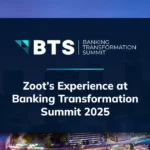We are moving toward an experience economy. Banks sell commodities, so how can they stand out? By showing deep customer empathy and authenticity.
At a recent industry conference Barbara Corcoran, from ABC’s reality television show Shark Tank, shared a sharp contrast between two of her financial institutions. The branch manager of her downtown Manhattan bank sits in the corner office which is comprised of floor to ceiling glass, making him completely visible to everyone who walks by. The intent is to show a human connection; that he is accessible. In reality, he resembles a statue—cold, stone-faced, never smiling or showing any expression. She has never seen him interacting with his customers.
On the other hand, her local community bank always greets her with a friendly smile and puts a dog biscuit in the pneumatic tube following her transactions in the drive through. Her dog starts wagging his tail whenever they approach the drive-up window because he knows he is going to receive a treat. It makes Barbara happy that her bank cares about her dog and customers appreciate a thoughtful gesture, regardless of how simple it seems.
Barbara’s point in sharing her story—to make a lasting impression, you must be genuine or it will fail.
The lens through which we see the world
Everyone has a lens through which they see the world. Banks that are able to see the world through their customers’ lens will be able to build an authentic experience. This requires an understanding that their own lens could be biasing the decisions they make.
Mainsource Bank, based in Indiana, believes a strong community leads to a strong bank. They practice what they consider “basic innovations”—providing space for events and meetings after hours that are not banking related, a place to use technology (whether you are a customer or not), and a commitment to being a community anchor, not just a service provider. Personal connections are key to meeting their goals.
BBVA Compass differentiates by focusing on the customer experience and reducing complexity. They use the data they have to focus on what their clients’ need, not what the bank thinks they need. If their customers are on Zillow, they know they will eventually want a mortgage. Their goal is to provide purpose and a better experience by putting their customer at the center of what they do.
“We’re working to create experiences that improve people’s lives,” said Jennifer Dominiquini, Chief Marketing and Client Experience Officer for BBVA Compass. “We want to go above and beyond what’s expected, spread our passion and enthusiasm with others and help our clients when they need us most. That’s what we want to be known for.”
Empathy in action
While it is more difficult for large financial institutions to know customers on a personal level, that doesn’t mean it is impossible to understand them. An experience with a top-ten bank illustrates this well.
We have all forgotten to pay a bill on time. Life happens. Imagine calling to ask for the late fee to be removed and have someone actually understand that life happens, remove it without question, and tell you they value your business. This happened to me recently when I forgot to pay my credit card bill. The interaction provided a great customer experience, but I was shocked that it was so seamless.
Why? This hasn’t always been my reality with other financial institutions or transactions. Sometimes you can barely make it through the automated menu without feeling frustrated. When you do, the outcome isn’t always satisfactory.
Success in an experience economy
Customer service representatives must have both strong product knowledge and the ability to empathize with customers. People with empathy show more passion and that translates to a good customer experience. Even if you can’t give the customer everything they ask for, they should leave the conversation feeling valued and heard. That may mean further action is necessary—a follow up communication to ensure the situation has been resolved or simply a message thanking them for their business.
In the famous words of John Lydgate, “You can please some of the people all of the time, you can please all of the people some of the time, but you can’t please all of the people all of the time.” While that may be true, it is critical to work toward the goal of customers being surprised when they don’t receive good service, instead of when they do.
Deep customer empathy is a critical part of standing out in an experience economy. It will become impossible to succeed without a personal connection to your customer base.





